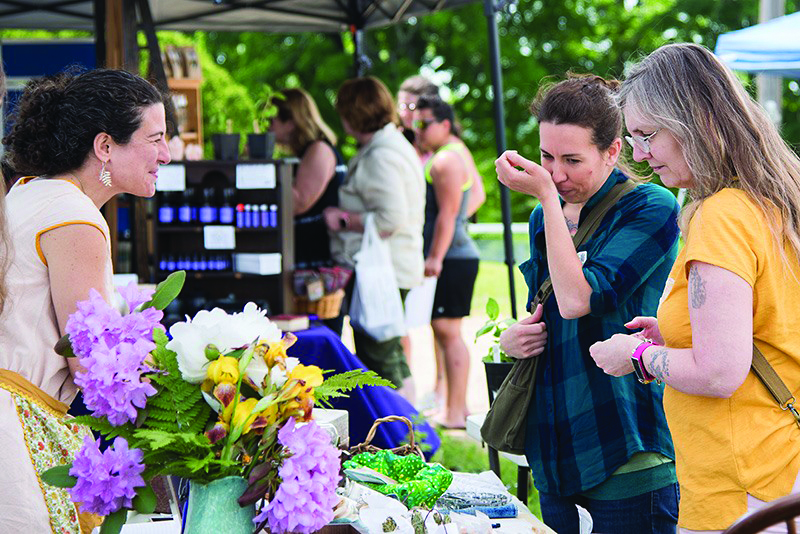My blender died last summer.
I’m not sure what I asked it to do — scramble a couple of eggs, maybe? — but it made a sound like a dying frog, and slowly ground to a halt.
Oddly, I took this as a good omen. I had been dropping 25-pound hints to my wife about how great it would be to have an upscale, professional-grade blender. I’m not 100 percent sure if these thoughtless, insulting references to ambitious blending are what broke my old blender’s will to live, but I feel guilty about it anyway.
But not too guilty — I had that particularly dangerous gleam in my eyes that only 16-year-old boys and middle-aged men get. I really, really wanted a new blender, which my wife was fine with.
Until she found out how much it would cost.
At which point she gave me an ice-cold, steel-spined glare that the above-mentioned 16-year-old boys and middle-aged men are extremely familiar with.
A little more research on my part revealed that there is such a thing as reconditioned, high-end, professional blenders, that are slightly cheaper.
This revelation relaxed my wife’s glare by about 12 percent.
I suggested that I could put a little bit of cash aside each week and save up for one of these almost-new über-blenders, and got cautious, provisional permission to move ahead with this plan. Frankly, I’m pretty sure she thought that I didn’t have the attention span to follow through with it and would forget about it eventually.
Except that I found a loophole.
I had been throwing all my spare change in a large jar on my bedroom dresser for the past year or two — by definition saving up money, bit by bit. I made an appointment, then went to our bank to get the change counted.
When I got back, my wife asked, “How’d it go?”
I responded that unfortunately we’d need to go to the post office and get a change-of-address form.
Another confused but cautious look. “And why is that?” she asked.
“Because we’re moving to BLENDER TOWN, BABY!,” I responded, fluttering a handful of cash in her face.
Which is how I got Steve.
Steve is not a patient appliance. Every time I blend something, he urges me to use his highest setting — “C’mon, boss! Let me loose!” I quickly learned that while I could probably use Steve to grind a broomstick into sawdust, that much power isn’t all that useful for many of the things I actually want to blend. He is so powerful that on the highest settings, cavitation from the blades will lead to an air pocket that keeps the food from getting as blended as you’d think.
All of which is more or less beside the point, except to say that your blender — OK, my blender — is your (my) new best friend when you make this week’s recipe: boozy ice cream.
Rum Cheesecake Ice Cream
Put the canister of your blender on a kitchen scale and zero it out.
Add the following ingredients to the blender jar, taring the weight each time:
• 1 block / 8 ounces / 230 grams cream cheese
• Zest of 1 lemon
• 1 cup / 8 fl. ounces / 240 grams sour cream
• ½ cup / 125 ml sugar
• Pinch of salt
• 3 Tablespoons / 1½ ounces dark rum – I like Myers’
Blend. (At this point Steve chuckled evilly, and I indulged him. I turned the dial up to 8. Steve had a Very Good Afternoon.)
Put the blender jar in the refrigerator and chill thoroughly.
Blend again, briefly, then pour into your ice cream maker and turn it into ice cream.
Harden in your freezer.
So, here’s the thing about using alcohol in ice cream:
Sugar and alcohol have very important roles in ice cream, apart from tasting good. They affect the freezing/melting point and texture of the finished product in extremely weird ways. You are extremely limited in how much you can or cannot use. Do not try adding more rum to this recipe. Don’t try to find a loophole (yes, I’m aware of the irony here) and use a higher-proof rum – the amount of alcohol will seriously mess up your texture, and possibly your ability to make ice cream at all. Even the fairly modest amount of rum in this recipe dramatically altered my ice cream maker’s ability to freeze it. Normally it takes me about 20 minutes to freeze a batch of ice cream. This took close to an hour. (Steve did not help the situation by shouting disrespectful comments to the ice cream maker, across the kitchen, implying that if it was better at its job, it would have a name.)
This cheesecake ice cream is really delicious — it tastes spot-on like actual cheesecake — but the rum is definitely a subtle, background flavor.
That’s where the topping comes in.
A Possibly Misguidedly Boozy Blueberry Topping
Ingredients:
• 2 cups frozen wild blueberries
• 1/2 cup water
• 1/2 cup sugar
• 2 Tablespoons fresh-squeezed lemon juice
• 2 Tablespoons cornstarch, mixed with 2 Tablespoons cold water
• 8 Tablespoons / 4 ounces Golden Rum
• Zest of 1 lemon (about 1 tablespoon), optional
In a small saucepan, over medium heat, stir the blueberries, water, sugar and lemon juice, until it comes to a gentle boil. Let it boil for another 10-15 seconds, to make sure the sugar is completely dissolved.
Stir in the cornstarch/water slurry, and keep stirring, until the mixture thickens noticeably – about three minutes.
Remove from heat, then add the rum and lemon zest. Let the mixture cool slightly before topping your ice cream.
Blueberries and lemon go together extremely well. This is a fantastic topping. Yes, you can make it without the rum for the kids – sub in a tablespoon of vanilla for the alcohol – but this is a really, really good Thursday night, bracing-yourself-for-one more-day, grownup sundae. The rum is deceptive. You’ll taste a spoonful by itself – this is inevitable – and say, “Yup, that’s a good sauce,” then go to put the spoon in the sink, only to be stopped in your tracks by a hands-on-hips, steely glared reaction from the sauce.
“Good? That’s what you have to say? Good?”
The ice cream maker might not have a name, but I call this sauce Frida.
Featured photo: Boozy ice cream. Photo by John Fladd.






